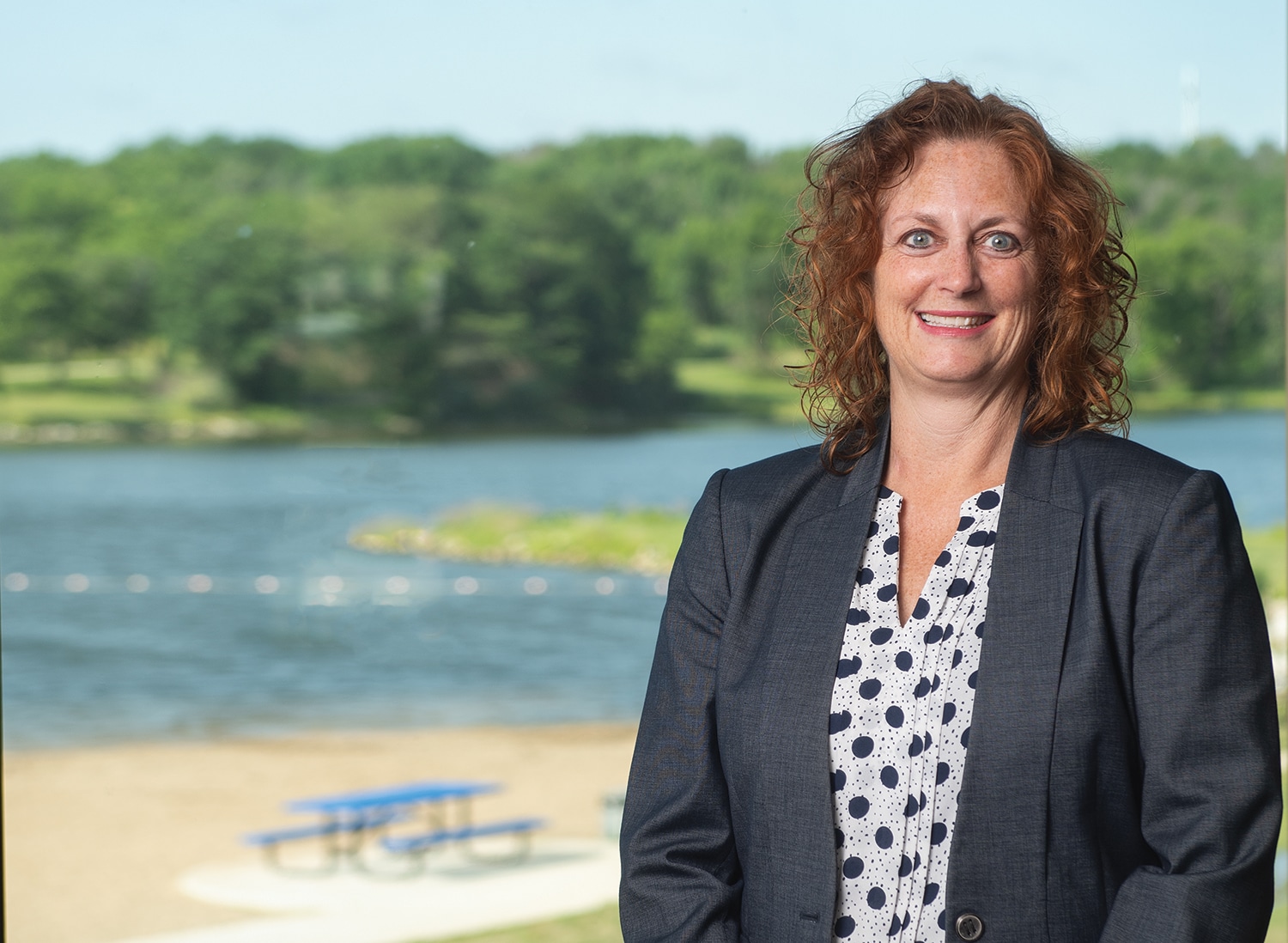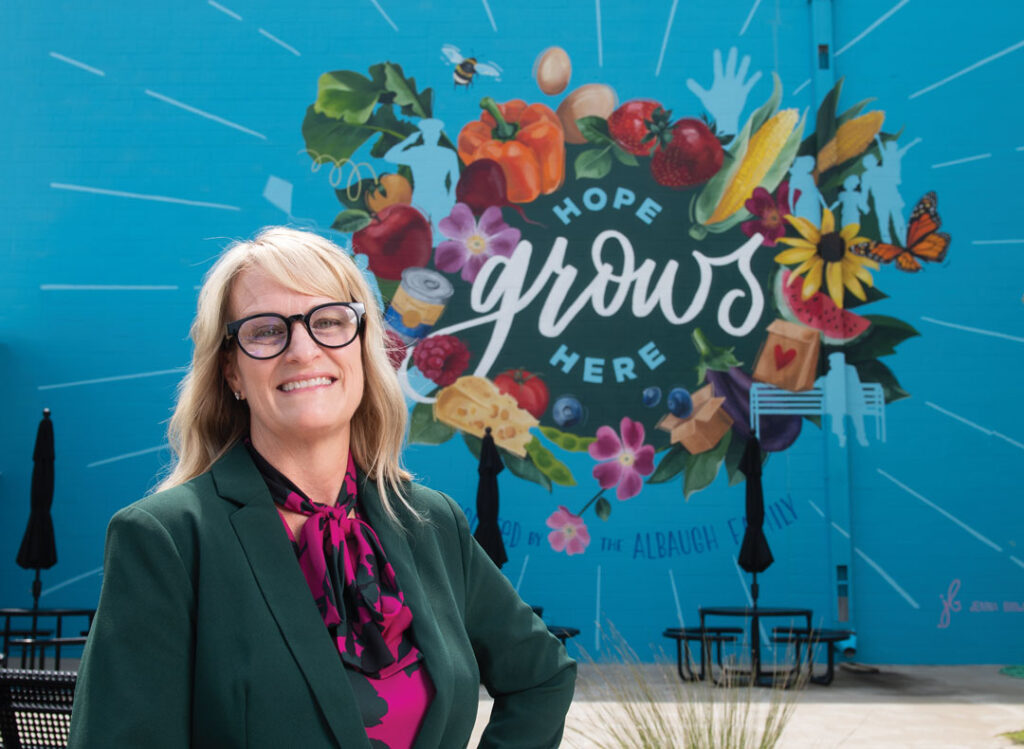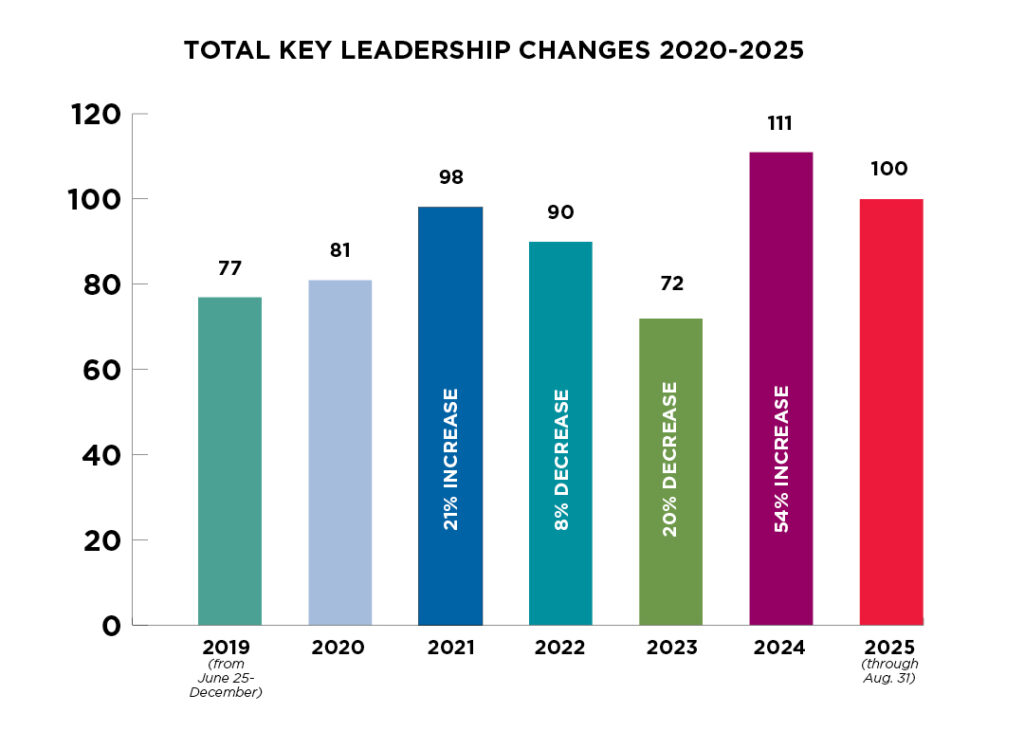Disability Rights Iowa looks to grow its advocacy as it celebrates 40 years

Emily Barske Wood Jul 5, 2024 | 6:00 am
7 min read time
1,702 wordsA Closer Look, Business Record Insider, Government Policy and Law, Health and WellnessGrowing up in Iowa City, Catherine Johnson distinctly remembers watching Geraldo Rivera’s 1972 investigative documentary that exposed inhumane living conditions at Willowbrook State School, a facility for youths with intellectual disabilities in Staten Island, N.Y. She shared with her mom how appalled she was that people could be treated so poorly, and her mom told her, “Maybe when you grow up, you can do something about it.”
Just 8 years old at the time, Johnson took her mom’s message to heart and eventually started on a career path in civil rights that led her to find a particular passion for disability advocacy. In 2021, Johnson left her role as an attorney at the Disability Rights Center of Kansas to lead Disability Rights Iowa as its executive director.
Established in 1984, Disability Rights Iowa is the state’s designated advocacy organization and is part of the National Disability Rights Network, created by Congress to protect the rights of all individuals with disabilities. The designation allows the nonprofit access to what are referred to as locked facilities to check the living conditions and services being provided.
Additionally, this year, Disability Rights Iowa projects it will receive 2,500 requests for help from Iowans with disabilities via the nonprofit’s free advocacy and legal consultation, to help with issues like working with an employer on accommodations.
As the organization celebrates its 40th anniversary, one of its main goals is to be more known statewide.
“In Iowa, about 12.5% of Iowans identify as having a disability — that’s, give or take, about 400,000 Iowans — for a staff of 20,” Johnson said. “But before you can reach out to ask us for help, you have to first know we exist.”
That involves a lot of outreach, she said, and it also means ensuring Iowans know what disability means. The nonprofit uses the federal definition of disability.
“We need to make sure that all Iowans are aware of the fact that, if they have cancer or they have asthma, or they have depression, that, under federal law, all of those types of conditions are considered disabilities,” Johnson said. “And they’re entitled to free service from our agency to the level that we can provide.”
The organization’s other main areas of focus include fostering an intersectional approach to its services so it can be welcoming to all, providing a systems-approach to advocacy in instances where multiple individuals are experiencing a similar barrier and establishing new revenue streams so the organization can ramp up advocacy.
We recently sat down with Johnson to learn more about her, Disability Rights Iowa’s work and the Equal Access Festival planned for July 27.
The following Q&A has been edited and condensed for clarity.
What are some of Disability Rights Iowa’s goals that you specifically want the business community to be aware of?
We’ve seen a real increase in the need for understanding the ADA Title I and the requirement of businesses to provide reasonable workplace accommodations. I don’t think there are very many businesses that fully understand what that means. Nor do I think there are a lot of Iowans with disabilities who understand their rights to accommodation. If businesses have employees that are confused, they can certainly refer to us as a resource. We would provide training to businesses if they’re interested in learning more about the ADA and how to provide accommodations.
Generally speaking, we would like businesses to know that we’re here, and we are working hard to impact Iowans with disabilities. In the goals that are set out within the ADA — and that’s independence, as well as full access to support services and all activities in the community, and economic self-sufficiency — you can see how employment is really a big part of that. We’ve been really interested over the past couple of years in trying to really figure out what percentage of Iowans with disabilities are working at the level they want to work. Even though the ADA has been around for nearly 34 years, the percentage of employees with disabilities that work at the level they want to work is still well under what it would be for a person without a disability. There’s lots of opportunities for businesses to think broadly about their roles and look to the disability community to fill those employment opportunities. There’s a lot of potential there for the business community to tap into a market they maybe haven’t thought of before.
I know advocates have also shared that the disability benefits cliff effect is also causing some employees not to seek a promotion or leadership role in fear of losing their benefits.
We’re concerned about those barriers that exist, and we’re actively working on trying to develop partnerships to remove those barriers. If that is something businesses are concerned about also, having businesses be involved in that conversation could be very beneficial.
In 2020 there was frustration from some in the disability community that businesses began offering hybrid or remote work when, for years, people with disabilities had been denied those accommodations. What’s the current sentiment on hybrid work options?
Before COVID, it was very challenging to have a remote work accommodation, or a hybrid accommodation, approved. I think COVID changed all of that because it showed how adaptable we can be when it comes to work and how productive people with disabilities who want to work remotely can be. I don’t think anyone, as far as I’m aware, has experienced a loss of revenue or a loss of productivity from employees working remotely.
With the return to physical office work, I see lots of different things happening with that. First off, if a company is requiring that across the board and not providing accommodations for employees that want to work remotely, that is, of course, going to negatively impact employees with disabilities. There are some employees with disabilities who are more productive remotely and some who need to work remotely for a variety of disability and health-related conditions. It’s concerning to me if employees are getting pulled back uniformly to an in-office setting. I think from the employee perspective, that’s, generally speaking, not a welcome approach. It’s also extremely beneficial to have a hybrid environment because it benefits employees with disabilities who want that because it allows them to work at the level that they want without having to ask for an accommodation.
Is getting more private donations part of your goal to increase revenue streams since a large portion of your funding comes from your government designation currently?
We can’t increase our federal grants because they’re decided by Congress. But what we can do is have individuals or companies grow the individual donation side of things, and the hope is that, over time, we grow that to a sufficient level that we can hire additional staff to do more work. A lot of what we do here is really driven by our staff. We can only provide so many people legal and non-legal advocacy representation. Our numbers of people that are asking for our help are doubling or tripling, and so we want to be ready to help, which means we need to have more people here that can provide that help. (The organization has tracked a 60% increase in need since Johnson joined the organization three years ago.)
How would you describe your leadership style?
I like to set a clear vision for how the agency is going to move forward, and I like that to be a vision that’s shared and fully understood by everyone on the team. So I spend a lot of time talking to my team about what’s important to them. Why do they work here? What’s important, in their opinion, in the disability community? Both with my team and also throughout the state, I very much believe in collaborations and partnerships. I spend a lot of time making sure that we’re developing really strong partners, because nothing happens in the disability community just because one person says, ‘Hey, let’s go do this.’ It always takes a team of dedicated advocates to get anything done.
What is your advice to up-and-coming leaders?
It’s important to know both what you’re really strong at as a leader and areas where you have room for opportunity and growth. Having a plan of what you want to accomplish is important. Equally important is having the ability to communicate your plan and your vision in a way that others understand. I’m very much someone who leads by trying to inspire people and motivate people about the importance of the work, and build those collaborations. At the heart of all of that is you can only lead if you have people that are willing to come along with you.
What’s something that many people might not know about you?
I spent my third-grade year in Bergen, Norway, with my family. It was a perfect year for me to spend abroad because it really caused me to have an awareness of things outside of me, outside of the United States. I hadn’t really ever done any travel besides going to visit family in different parts of the United States, so it was a really eye-opening experience. It made me understand the power and importance of understanding perspectives outside of mine because I was a kid in a group of other kids that didn’t speak English. I didn’t speak Norwegian, so trying to figure all that out was just really powerful.
Is there anything I didn’t ask you that’s important to know about your work?
I would like to add how grateful I am to have this amazing team of people that I work with. They are so mission-driven, they care so deeply about Iowans with disabilities, creating change and making the world a better place, that every day here is empowering and motivating to all of us. We’re just a really special group.
Equal Access Festival planned for July 27 at Athene North Shore
At a glance
Age: 59
Hometown: Iowa City
Education: Bachelor’s degree in business administration, law degree and master’s in higher education degrees all from the University of Iowa
Activities: Spending time outdoors, walking, running, cooking
Contact: cjohnson@driowa.org

Emily Barske Wood
Emily Wood is special projects editor at Business Record. She covers nonprofits and philanthropy, HR and leadership, and diversity, equity and inclusion.











